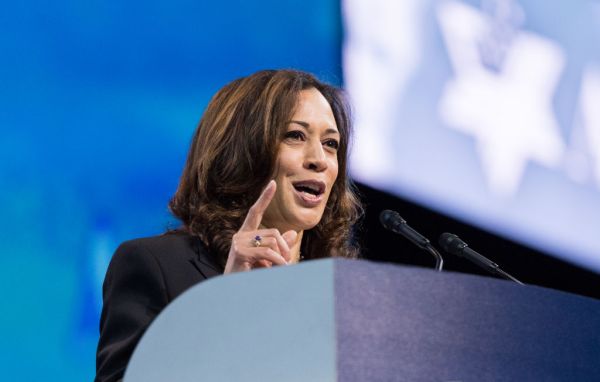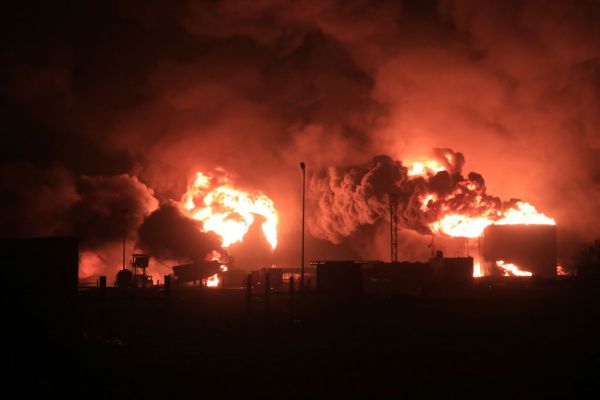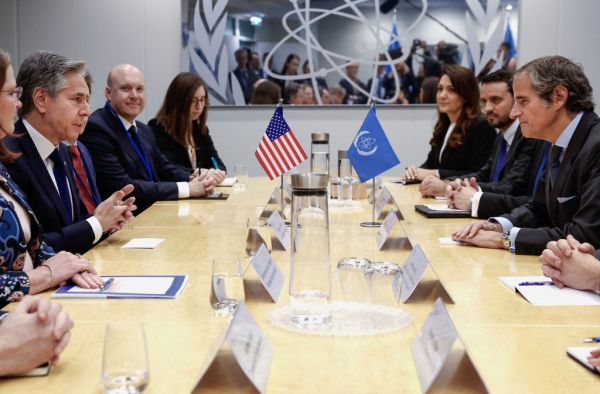TEL AVIV, Israel—In early September, Hezbollah leader Hassan Nasrallah hosted several heavy hitters of Iran’s terrorist network in Beirut, Lebanon, to coordinate resistance against the “Zionist” enterprise. Among his guests was Hamas’ deputy leader abroad, Saleh al-Arouri, who ahead of the meeting vowed that Israel would suffer “unprecedented defeat” in the face of an “all-out war.”
On Tuesday, exactly four months later in the same Hezbollah-dominated neighborhood of southern Beirut, a reported Israeli drone strike killed al-Arouri and six other Hamas members. In addition to disrupting the Palestinian terrorist group’s senior leadership, the high-level assassination puts Iran and Hezbollah to the test: Will they step in to avenge a longtime ally and demonstrate their common cause, or will they continue to look the other way in the hopes of avoiding an all-out war with Israel?
Since Hamas’ October 7 massacre, Hezbollah has launched near-daily attacks along Israel’s northern border, but it has stopped short of full involvement in the war. Some fear the high-profile killing of al-Arouri on Lebanese soil could change that. A spokesman for Israeli Defense Forces (IDF) said Tuesday night that the military is in a “high state of readiness for any scenario,” including the prospect of escalation on the northern front. Hezbollah currently has tens of thousands of trained fighters, as well as an arsenal of roughly 150,000 drones, rockets, and missiles capable of targeting deep into Israeli territory.
Meanwhile, in a speech on Wednesday, Nasrallah declared the strike an act of “flagrant Israeli aggression” and a “major, dangerous crime about which we cannot be silent.” Fighting on the Lebanese-Israeli border continues while the region holds its breath in anticipation of a larger Hezbollah reaction, though if it will come and what form it will take remains uncertain.
The precision-strike in a Hezbollah-dominated suburb marked a “big humiliation” for Nasrallah, said Yoni Ben-Menachem, an Israel-based Arab affairs expert. “The Dahieh neighborhood, which is the most important stronghold of Hezbollah, is supposed to be a safe area,” he told The Dispatch. “Al-Arouri was a guest of Hezbollah, and he was assassinated.”
That al-Arouri was the chosen target makes Tuesday’s killing all the more provocative.
From exile in Lebanon, the Hamas commander led efforts to arm, bankroll, and build out armed resistance in the West Bank. The initiative benefited greatly from al-Arouri’s Iranian backers, who helped to smuggle weapons to refugee camps in Jenin, Nablus, and Tulkarem by way of Syria and Jordan. The IDF in recent days has conducted raids to target terrorist infrastructure in the Hamas strongholds, as armed groups in the West Bank vow to avenge their slain leader. “If you compare it to Gaza, you can compare it to the same position as Yahya Sinwar, but in the West Bank,” said Ben-Menachem.
“Developing the resistance is a top priority for Hamas and the [other] resistance factions, and achieving the ability to hurt and exhaust the enemy, in order to force it to recognize our national and political rights, is a major goal,” al-Arouri told Al-Jazeera in a September 2023 interview, according to a translation by the Middle East Media Research Institute. He went on to warn that Israeli Prime Minister Benjamin Netanyahu’s policies toward Iran and Hezbollah could “lead to the outbreak of a regional war.”
Al-Arouri served as a key liaison to Iran and Hezbollah, promoting Hamas’ coordination with the broader “Axis of Resistance” in the struggle against Israel. Leading up to October 7, al-Arouri reportedly attended biweekly meetings in Lebanon with Iranian Quds Force commander Ismail Qaani, Palestinian Islamic Jihad leader Ziyad al-Nakhalah, and Nasrallah. He had also met face-to-face with Iranian Supreme Leader Ali Khamenei on multiple occasions, including as recently as November, when he traveled to Tehran in an unsuccessful bid to get Iran to become more directly involved in the war.
“Arouri was the interlocutor between Hezbollah and Hamas, and Iran and Hamas,” Joe Truzman, an analyst at the Foundation for Defense of Democracies focused on Palestinian terror groups, told The Dispatch. “He was very important to Iran and to Hezbollah.”
For years leading up to the war, two concurrent movements within Hamas emerged: one pushing for closer ties with the Muslim Brotherhood—and their state representatives in Qatar and Turkey—and one advocating for greater integration with the Iranian axis. Al-Arouri fell into the latter camp, which championed the strategy of causing chaos along Israel’s border and ultimately gave birth to the October 7 attack. The slain commander was reportedly the only Hamas leader outside of Gaza who knew about the attack in advance.
But al-Arouri’s rap sheet began long before the massacre. In 2014, he took credit for the abduction and murder of three Israeli teenagers in the West Bank—the event that spurred the last major ground war in Gaza. The U.S. State Department in 2018 offered a $5 million reward for information on his whereabouts, citing his connection to the murders. At the time, Assistant Secretary of State for Diplomatic Security Mike Evanoff said al-Arouri was “currently living freely in Lebanon, where he is reportedly working with the Iranian Islamic Revolutionary Guard Corps Quds Force.”
Nasrallah in August threatened Israel with a “severe reaction” if it carried out targeted strikes on Lebanese soil, but some analysts say the price of Hezbollah retaliation would be too high, particularly given Lebanon’s precarious economic and political situation. Short of striking Israel directly, there’s concern that Hezbollah may plot attacks against Israeli or Jewish targets abroad.
Israel’s willingness to incur that risk is relatively new. Despite Israel’s long history of carrying out covert operations to target adversaries abroad, Truzman assesses that the Arouri strike would’ve been considered an unnecessary escalation prior to October 7. The commander’s killing on Tuesday sends a powerful message—both to Hamas’ remaining leadership and to other members of Iran’s resistance network—that Israel is willing to take risks to prevent future attacks.
“Not only did they remove Arouri from the equation, but it also sends a message to Sinwar, Haniyeh, and Hezbollah that Israel is serious about removing threats,” Truzman said. “It doesn’t matter where you are, it doesn’t matter who is protecting you.”









Please note that we at The Dispatch hold ourselves, our work, and our commenters to a higher standard than other places on the internet. We welcome comments that foster genuine debate or discussion—including comments critical of us or our work—but responses that include ad hominem attacks on fellow Dispatch members or are intended to stoke fear and anger may be moderated.